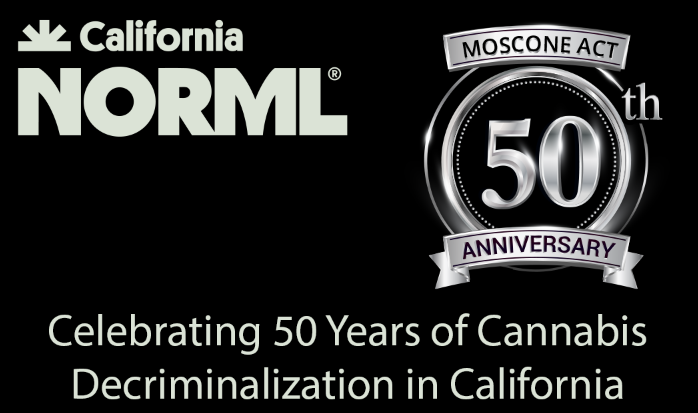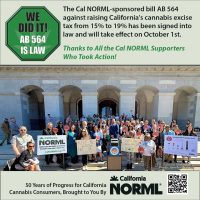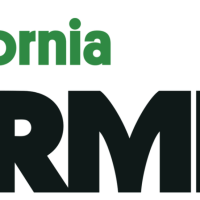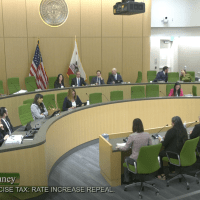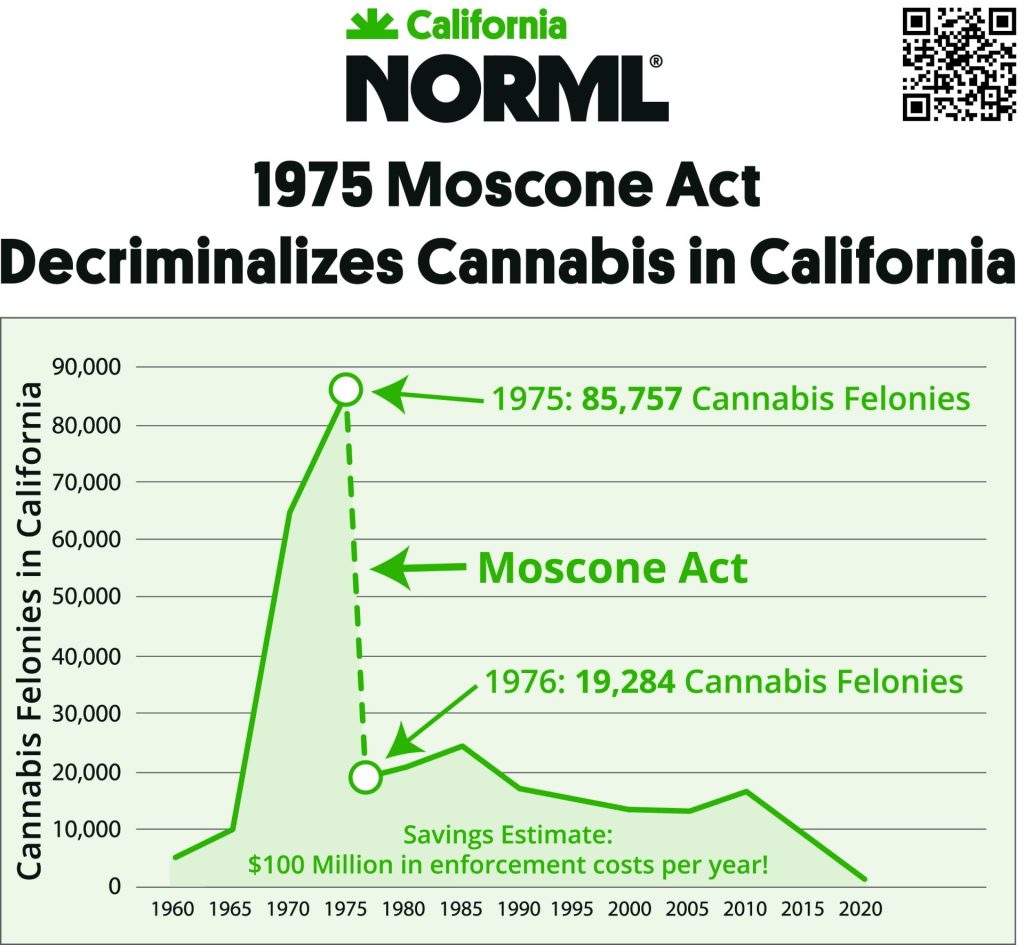 July 9, 2025 marks the 50th anniversary of California’s landmark marijuana decriminalization law, the Moscone Act, which reduced the penalty for possessing an ounce or less of marijuana from a felony to a citable misdemeanor punishable by a $100 fine and no jail. The law, sponsored by then-Senator George Moscone and California NORML, was signed by Gov. Jerry Brown on July 9, 1975 and took effect on January 1, 1976.
July 9, 2025 marks the 50th anniversary of California’s landmark marijuana decriminalization law, the Moscone Act, which reduced the penalty for possessing an ounce or less of marijuana from a felony to a citable misdemeanor punishable by a $100 fine and no jail. The law, sponsored by then-Senator George Moscone and California NORML, was signed by Gov. Jerry Brown on July 9, 1975 and took effect on January 1, 1976.
The Moscone Act resulted in an 80% reduction in felony marijuana arrests, saving the state an estimated $100 million per year in enforcement costs, and saving well over a million users from a criminal record over the years. The act also allowed prior offenders to clear their records. Prior to the Moscone Act, the possession of a couple of joints was punishable by up to 2 to 10 years in prison.
Passage of the Moscone Act will be celebrated at the California State Fair cannabis exhibit in Sacramento on the afternoon of Saturday, July 19. For the second year in a row, the Fair will feature an on-site cannabis consumption area.
THE HISTORY OF THE MOSCONE ACT
Sen. Moscone was approached to sponsor the decriminalization bill by leaders of the California Marijuana Initiative of 1972, the world’s first ballot initiative to legalize the personal use and cultivation of marijuana. Among them were Gordon Brownell, the director of California NORML, and Michael Aldrich, co-founder of Amorphia, which financed the 1972 CMI by selling rolling papers.
Though CMI failed 33%-66%, it got 2,733,120 votes, much better than expected. “Every county had a coordinator gathering volunteers. We had 20,000 people circulating the initiative – no paid signatures,” recalls Aldrich. “No one ever recognized there was such an electoral group out there. That was so astonishing that Moscone took up the idea.”
“The CMI formed the basis for a statewide reform movement that has existed ever since,” says former Cal NORML director Gordon Brownell, who went on to lobby for the Moscone Act in the legislature. In order to win passage, proponents were forced to drop cultivation from the bill and to lower the possession limit from three ounces to one ounce.
“We got the bill through the legislature because of Moscone’s leadership,” says Brownell. Assembly proponents included the late Alan Sieroty, who had sponsored a previous marijuana reform bill that was vetoed by Gov. Reagan, and Willie Brown, who went on to sponsor an unsuccessful bill to decriminalize cultivation for personal use. Gov. Brown signed the Moscone Act late at night on 7/9/1975, just before the legislative deadline.
Interviews with Gordon Brownell and Michael Aldrich will be featured at the historic California State Fair cannabis exhibit in Sacramento on the afternoon of Saturday, July 19. Also, felony marijuana arrestees will speak about the impact of their arrests on their lives and their families. The panel will be moderated by the current Cal NORML director Dale Gieringer. Cal NORML and the California Cannabis Historical Society will co-host a booth at the Fair from July 18-20. Join us!
MARIJUANA REFORM AFTER MOSCONE
California NORML went on to successfully fight off later bills to recriminalize marijuana, and require driver’s license suspensions for marijuana possession. Cal NORML was a co-sponsor of Prop. 215, which legalized the possession and cultivation for medical use in 1996. Adult use was finally legalized in California by Prop. 64 in 2016. Since then, Cal NORML has successfully sponsored bills to end discrimination against cannabis users by employers and doctors, among other reform battles, like last year’s cannabis cafe bill.
California NORML continues to fight for affordable consumer access to marijuana in Sacramento, currently as a sponsor of Asm. Matt Haney’s bill, AB 564, to repeal an increase in the state excise tax from 15% to 19% that took effect on July 1. Cannabis is currently taxed far more heavily than alcohol and other consumer products, sending consumers to untested and untaxed sellers. Coincidentally, AB 564 will be heard by the Senate Revenue and Tax Committee on July 9th, the 50th anniversary of the signing of the Moscone Act.
$50 FOR 50 YEARS OF ADVOCACY
Can you make a $50 donation today to Cal NORML to celebrate our 50 years of advocacy for cannabis consumers in California? Your membership contribution will help us fight for cannabis tax fairness and other reforms. Together we can show our collective strength and make a difference. (Donations of any amount are accepted and appreciated.)
Our business memberships start at $50 monthly and include a website listing, blog post opportunities, and other perks. Join today and know that your contribution will advance sensible and fair cannabis laws in California.

